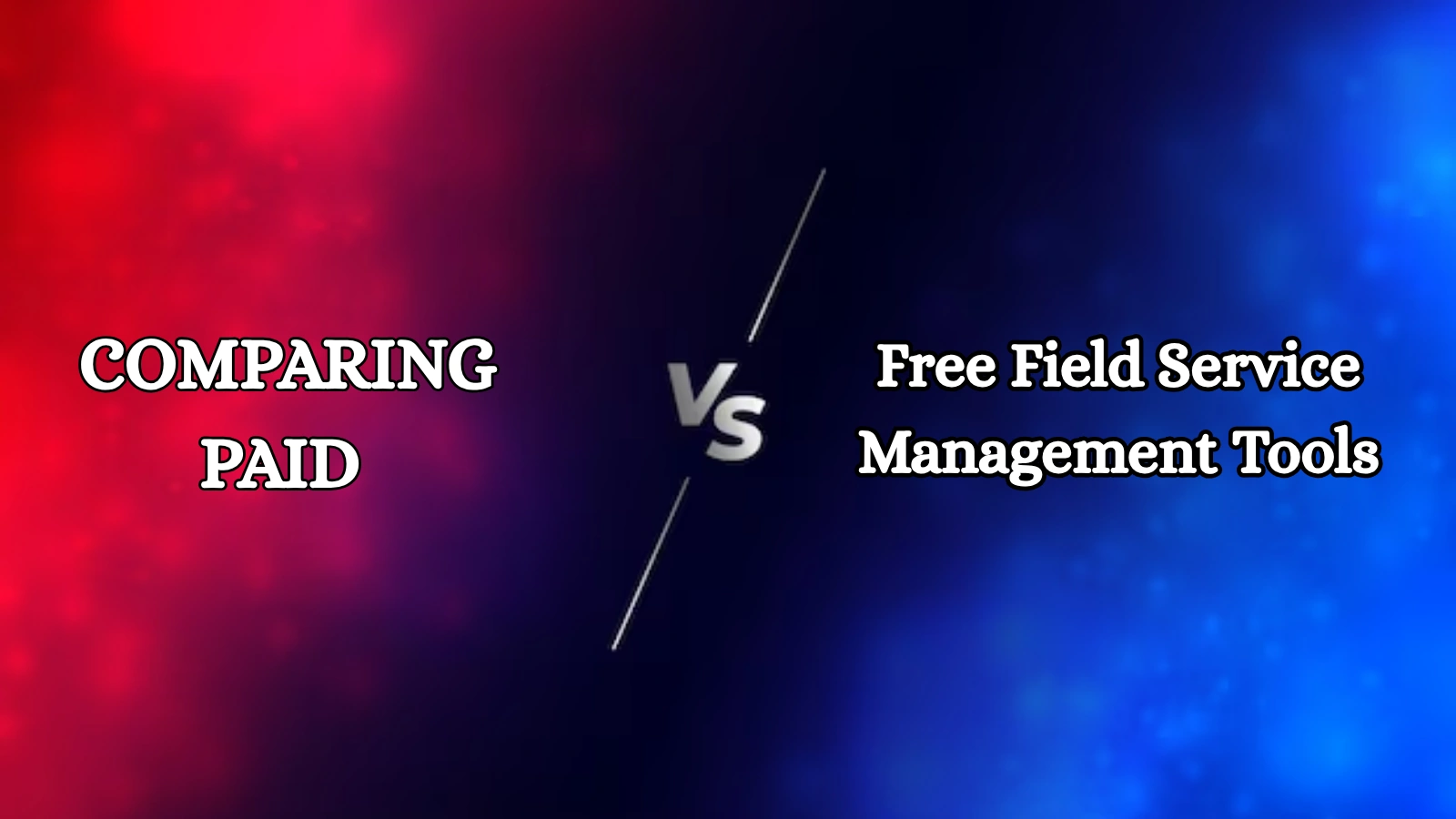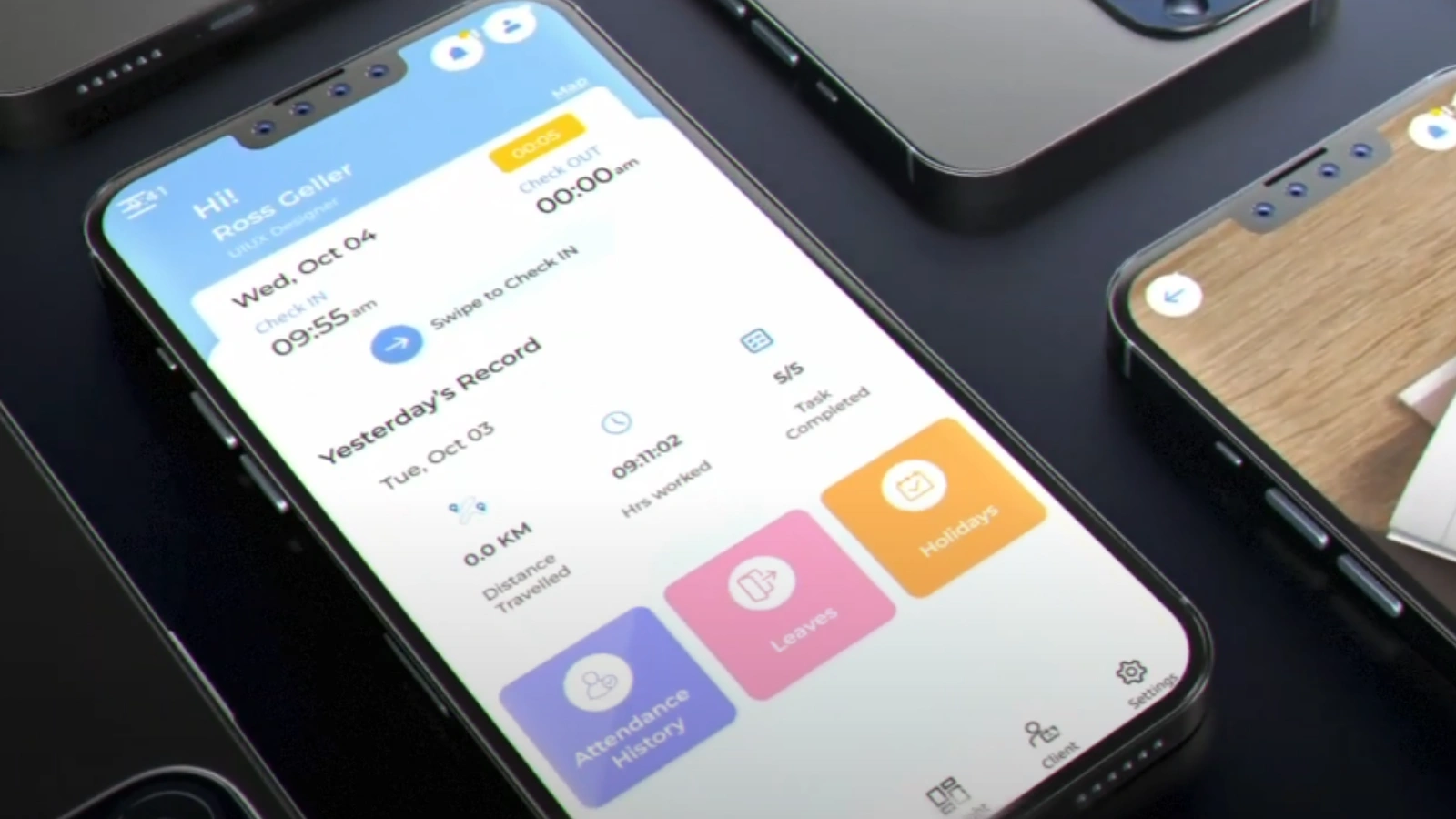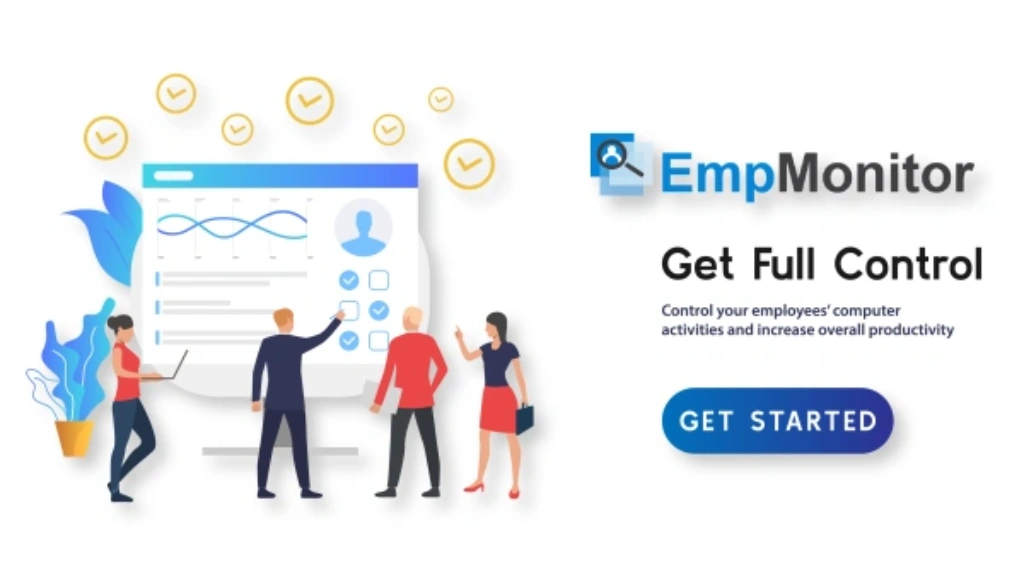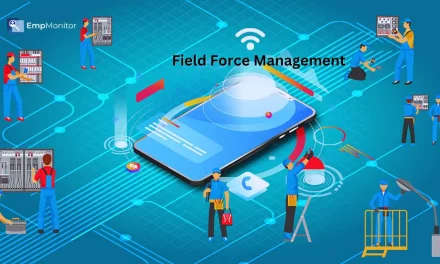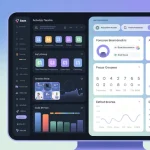Managing a small business effectively requires efficiency and organization, especially when managing field operations. Field service management software for small businesses can play a pivotal role in ensuring smooth scheduling, dispatching, and tracking of tasks. As small businesses scale, the complexity of managing these operations increases. Having the right software can streamline operations, reduce costs, and improve customer satisfaction.
In this guide, we’ll walk you through the steps to select the right field service management software for small business, discuss its features, and explore some top options available. From understanding the software to picking the best fit, we cover everything you need to know.
In a hurry? Listen to the blog instead!
What Is Field Service Management Software And Why Does It Matter?
Field service management (FSM) software is a tool that helps businesses efficiently manage their field operations, including scheduling, dispatching, and tracking the performance of the field workforce. These platforms are designed to automate tasks like job scheduling, inventory management, customer relationship management (CRM), and billing, making them essential for companies in industries such as HVAC, plumbing, electrical, and home maintenance.
Especially for field service management software for small businesses, FSM software can be useful in enhancing operational efficiency, ensuring that each job is handled promptly and professionally. This technology helps improve productivity, reduces human error, and enables better communication between teams in the office and those working in the field. It’s not just about tracking jobs; it’s about maximizing team potential and optimizing customer service.
Key Features to Evaluate in Field Service Management Software
When evaluating field service management software for small businesses, consider these essential features:
-
Scheduling & Dispatching
Modern Field Service Management (FSM) tools excel at intelligently scheduling tasks and assigning them to the most suitable team members. By analyzing workforce availability, skill sets, and location, the system ensures that each job is handled by the right person at the right time. This automation eliminates the need for manual coordination, significantly reducing delays and improving response times. The result is higher job completion efficiency, better workforce utilization, and increased customer satisfaction.
-
Mobile Accessibility
Field technicians need constant access to job information while on-site. With mobile accessibility, they can receive job updates, view customer details, and input service notes directly from their smartphones or tablets. This minimizes communication gaps, enables real-time updates, and reduces the need for back-and-forth calls. Technicians work more independently, and businesses benefit from faster response and service times.
-
Inventory Management
Keeping track of tools and materials is essential for field jobs. Inventory management ensures real-time tracking of stock levels across locations. It alerts teams about low inventory, tracks usage trends, and assists with timely reordering. This prevents service delays caused by missing items and avoids overstocking. Better inventory control directly improves cost-efficiency and preparedness.
-
Customer Relationship Management (CRM)
An integrated CRM connects customer interactions, service records, and billing into one system. It simplifies follow-ups, enhances communication, and allows for personalized service. You can track the complete history of each client, improving problem resolution and customer trust. CRM features also streamline invoicing and scheduling, making your service feel professional and dependable.
-
Reporting & Analytics
Gaining access to actionable insights is crucial for business growth. Advanced reporting tools help analyze technician performance, customer feedback, and service success rates. You can spot inefficiencies, improve turnaround time, and forecast future demands. These insights inform better strategic decisions, optimize resources, and highlight opportunities to improve service quality.
-
Payment Integration
Integrated payment systems link job completion with instant invoicing and payment collection. This feature minimizes administrative tasks and guarantees quicker cash flow. Customers can pay on-site using mobile options, increasing convenience and professionalism. Automatic syncing with accounting software minimizes errors and makes financial reporting seamless.
These features streamline workflow, improve efficiency, and offer a competitive edge in the fast-paced service industry.
Best Field Service Management Software For Small Businesses in 2025
Selecting the best field service management software for small business in 2025 depends on the size of your team, the nature of your services, and how you plan to grow. The right solution should provide flexible features that match your industry’s demands and scale easily as your business expands.
Look for platforms that offer reliable scheduling tools, mobile support, customer data management, automated billing, and strong reporting capabilities. Some solutions also provide built-in tools for communication, inventory tracking, and integration with CRM and accounting systems.
User-friendly design, strong customer support, and customizable workflows can make a big difference when choosing software for a small team. Trial versions and demos help evaluate whether a solution suits your workflow and business model.
When choosing the right software, it’s essential to look for scalability, user-friendly design, and customizable features that adapt to your team’s specific needs. Reading user reviews, testing core functionalities during trial periods, and ensuring the tool aligns with your operational goals can help you make a well-informed decision.
For teams managing mobile or field-based staff, a reliable field force management solution should offer real-time tracking, smart task assignments, and location-based insights. Tools with these capabilities not only simplify coordination but also enhance productivity of employees and accountability qualities found in robust solutions like EmpMonitor’s field force management application.
Free Field Service Management Software For Small Business: Is It Worth It?
For many small businesses, budget constraints make the idea of free field service management software for small business appealing. While these tools can provide some basic features, it’s important to consider whether they can fully support your business as it grows.
Free versions typically offer limited functionalities, and you may find that essential features like customer management, advanced reporting, or mobile access are locked behind a paywall. Additionally, free software might not provide sufficient customer support or integration capabilities with other business tools.
If you’re just starting and have minimal field operations, a free option might work temporarily. However, if you’re looking to scale or need specific features like GPS tracking, customer history, or real-time reporting, investing in a premium solution is often worth the cost in the long run.
How A Field Force Management Application Helps Small Teams
A field force management application can greatly enhance the productivity of your small business team. These apps allow managers to track employees’ movements, optimize scheduling, and keep a real-time check on job statuses. With features such as GPS tracking, mobile integration, and job status updates, small businesses can monitor work progress without needing constant communication with field staff.
Moreover, field service management software for small business improves efficiency by automating time-consuming tasks like scheduling and dispatching, enabling you to focus on more critical areas of the business. As field technicians complete jobs, the system can update records instantly, reducing the risk of mistakes and helping to maintain transparency with clients.
Read More!
How Can You Improve Productivity Of Your Employees?
Comparing Paid vs. Free Field Service Management Tools
Field service management software for small business comes in both paid and free options. While free versions provide basic functionality, paid tools offer more robust features, greater flexibility, and stronger support. Here’s what to consider:
Customizable Features: Paid software typically allows you to tailor the platform to your unique workflows. From assigning job roles to adjusting user permissions, it gives you control over how the system works for your team. Free tools usually come with preset limitations that may not adapt well to changing needs.
Customer Support: Paid plans often include dedicated customer support channels like phone, live chat, or priority email. This ensures you can get immediate assistance when something goes wrong. Free versions may only offer limited help documentation or delayed support responses.
Scalability: As your business grows, your operational needs expand. Paid field service management software for small business often comes with features like expanded user seats, advanced analytics, integration with other systems, and automation capabilities. Free tools usually cater to basic needs and may not support long-term growth.
Ultimately, the choice depends on your current operations, goals, and budget. Free field service management software for small business can help businesses get started and learn the basics, while paid solutions are better for teams looking to scale, automate, and improve service efficiency over time.
Read more!
How To Unlock Amazing Field Service Software Now?
The Complete Guide To Leave And Attendance Management System
Tips To Choose The Right Field Service Management Software For Small Business
Choosing the right field service management software for small business can feel daunting, but keeping these tips in mind can help simplify the decision-making process:
- Assess Your Business Needs: Start by outlining your daily operations and identifying what processes need improvement. Do you need help with scheduling, inventory management, or customer tracking? This clarity ensures you choose software that solves actual problems.
- Consider Mobile Features: If your technicians spend most of their time in the field, mobile accessibility is essential. The software should allow your team to update job statuses, access customer details, and communicate in real time from any device.
- Test for Ease of Use: Complicated software slows down operations. Choose a solution with a clean interface, intuitive navigation, and a short learning curve. It should be easy for both office staff and field technicians to use effectively.
- Look for Integrations: Your software should work well with your existing tools, such as CRM systems, accounting platforms, and billing software. Seamless integration ensures smooth data flow and minimizes manual work.
- Evaluate Customer Support: Small businesses may not have dedicated IT departments, so strong customer support is crucial. Look for solutions that offer responsive assistance through multiple channels, especially during the initial setup and onboarding.
Always test the software through a demo or free trial. It helps you understand the interface, features, and how well the platform fits your daily workflow before committing to a purchase.
How EmpMonitor Works For Small Businesses In The Field
Managing a field workforce comes with its own set of challenges: unpredictable schedules, scattered locations, and limited visibility into employee activities. That’s where EmpMonitor steps in, offering more than just employee monitoring. It delivers a complete field service management solution designed for small businesses to track, manage, and enhance productivity from anywhere.
With EmpMonitor, small business owners can monitor field operations in real-time, assign tasks efficiently, reduce operational costs, and keep teams aligned all through an intuitive, mobile-friendly platform.
Features That Empower Field Teams
EmpMonitor brings together advanced tracking and smart workforce management tools that help streamline daily operations across any industry. Here’s how:
Live Location Tracking
Know where your team is, anytime. Get real-time updates on the location and movement of your field staff, ensuring timely client visits and route optimization.
Distance Tracking & Geo-Fencing
Track the total distance covered by employees and set up virtual perimeters using advanced geofencing. This helps monitor territory coverage, verify field tasks, and prevent time theft.
Timeline Review & Attendance Management
With the help of an attendance management system, view an employee’s full-day journey through a detailed timeline. Manage attendance automatically with real-time punch-ins, digital leave requests, and holiday tracking—all visible in one dashboard.
Task and Client Management
Assign, track, and update task statuses on the go. Upload documents, snap task photos, and manage client interactions, everything from within the platform.
Performance Reports & Analytics
Access deep insights into task completion rates, time efficiency, and field behavior through customized reports. Perfect for evaluating employee performance and identifying areas for improvement.
Geo-Verified Client Visits & Photo Proof
Ensure accountability with geo-tagged verification of client visits. Employees can upload images and documents as proof of work completed, adding a layer of transparency.
Conclusion
The ideal field service management software for small business simplifies your tasks, saves time, and helps scale. Whether you’re in HVAC, cleaning, repair services, or landscaping, look for a platform that adapts to your business, not the other way around.
If your team already faces challenges in time tracking or productivity, combining your field service tool with an employee management solution can be a game-changer. That’s where EmpMonitor can help.
FAQs
- How does field service management software improve customer satisfaction?
By enabling faster response times, accurate job scheduling, and real-time technician updates, field service management software for small business helps deliver timely, high-quality service. It also allows for better follow-up and more professional communication with customers. - Is free field service management software a good option?
Free tools can work for startups or very small teams that need only basic features. However, as your company expands, relying on robust field service management software becomes essential. Paid tools offer automation, analytics, and third-party integrations that free versions often lack. - Can this software integrate with my existing tools?
Yes, most platforms support integration with CRMs, accounting tools, and inventory management systems. A good field service management software for business ensures seamless workflows, reduces manual entry, and boosts accuracy across departments. - What should I look for when choosing the best field service management software for small business?
Focus on features like automated scheduling, mobile access, inventory tracking, CRM integration, analytics, and payment systems. The best field service management software for small business should also be scalable, user-friendly, and backed by responsive customer support. - How does EmpMonitor support field service businesses?
EmpMonitor complements your operational tools by monitoring employee productivity, tracking attendance, and preventing insider threats. It ensures accountability, improves efficiency, and helps managers make data-driven decisions. Combine it with reliable field service management software for small business, and you’ll be fully equipped to enhance service quality, minimize downtime, and drive faster growth.




